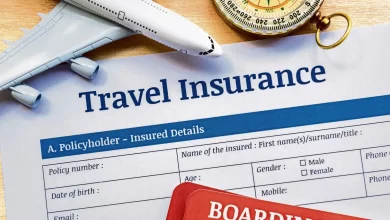
Act Smartly to Prevent Exorbitant Cell Phone Expenses When Traveling Abroad
Your next cell phone bill could be enormous every time you travel abroad for a family vacation or cruise since roaming plans provided by US telecom companies are anything but simple. Even though the federal government has put pressure on providers to lower pricing, roaming fees are a significant source of income for telecom behemoths, meaning that Americans pay some of the highest bills worldwide. You have to reach deep into your pocket for each call you make, text you send, or bit you download.
Here are some pointers to make the most of your mobile connection when traveling abroad if roaming fees are a concern. To learn how to acquire more for the same amount of money, please keep reading.
Consider Your International Options Carefully
Perhaps you would prefer to completely unplug, which is an excellent way to spend a vacation. The never-ending barrage of messages, alerts, and information overload can be avoided. Use an eSIM to avoid the inconvenience of putting in and taking out a local SIM card throughout your flight if you don’t want to cut off constant connectivity. To answer your question, an eSIM is a SIM card that is built into the phone. It allows you to move between multiple data plans and carriers, which increases your financial freedom. LTE data usage ought to be possible without paying exorbitant costs.
After landing in the USA or another country, for example, the last thing you want to do is stand in a long line to obtain a prepaid SIM card. Plans vary in duration from a few days to a year, so you can bypass the line. Making a decision is difficult, if not impossible, with so many carriers offering eSIMs. Consider purchasing a SIM card specifically designed for your trip if your present network provider does not provide an affordable roaming option. The eSIM card makes it simpler to monitor your phone if it is lost or stolen because it is permanently attached to the device.
Disable Roaming
You could have to pay extra to use mobile Internet, send texts, and make calls in the nation you’re going to. Turn off cellular data and roaming before boarding the aircraft to avoid your device connecting to towers along the route and incurring expensive carrier fees. Because of your phone’s tremendous degree of customization, you have total control over even the most fundamental functions, like data use. Wi-Fi will continue to function for you. While roaming can be useful, there is nearly always a cost associated with it.
Communicate Mostly Through SMS
Texting is a quick and discreet way to communicate if you don’t have time for a phone conversation because it’s far less expensive than calling. When the recipient has a few minutes to spare, they will read the message. When traveling, SMS is a reliable way to stay in contact with friends, family, and coworkers. You’ll be shocked at how much communication you can have. Texting is ideal when you need to announce something or want to reach a lot of people at once because it doesn’t always demand a response. Text messages are more private than phone calls, which can be overheard, but they can still be hacked because they aren’t end-to-end encrypted.
Utilize WiFi wherever possible
If you disable data roaming, your phone won’t try to connect to a network that isn’t owned by your original carrier, which means you won’t be able to use WhatsApp or update your maps. The good news is that if you’re connected to a Wi-Fi network, you can still receive texts and phone calls. Internet connection is usually included in the packages offered by hotels, restaurants, and coffee shops; in many situations, Wi-Fi is quicker than mobile data. Your visit will be more enjoyable. You will be able to complete your Internet-related duties quickly, in addition to saving a significant amount of money on data costs.
Verify the legitimacy of a network, as it may have been put up by a scammer. In the event that the name is excessively ambiguous or reads something like “Free Airport Wi-Fi,” it was probably installed by those who wish to steal your phone. For example, ask the person at the counter for information about Wi-Fi when you check into a hotel so you know what to look for the next time you browse the internet. Don’t allow the Wi-Fi network to utilize your data or install software on your device if it asks you to install anything before you can use it.
Turn Off Extraneous Apps
How many apps are used regularly on your phone out of all of them? You likely have a good number of pointless apps loaded on your phone that use Internet connections to download, update, and refresh cell data. You run a lower chance of accruing hundreds of dollars in roaming charges the fewer apps you have open. Because of how the manufacturer has embedded the software into the operating system, you won’t be able to delete it entirely, but you can stop it from running and consuming essential resources.
Keeping in Touch While Traveling
Maintaining a connection when on the fly is essential, particularly if it’s during the workweek. Be sure that your phone is eSIM-compatible to benefit from more economical overseas data. You can switch carriers and use your phone with other providers without changing your SIM card thanks to this innovative technology. All you need to do is download the account information, or profile, to your mobile device from the network. To avoid confounding the individuals you try to reach, you might keep your phone number for regular communication. To fully benefit from eSIM technology, some preparation is necessary.
We hope the above-discussed techniques will help you regain control. Turning off automatic updates for the duration of your trip may seem insignificant, but it will save money on your bill.



